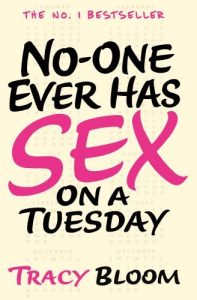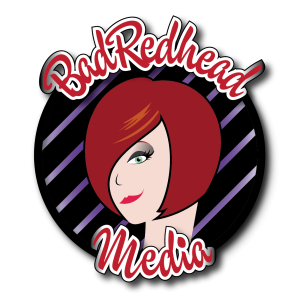7 Insider Tips You Need to Learn from Self-Pub Pros by guest @sarahannjuckes
Please welcome honored guest Sarah Juckes today sharing seven amazing book marketing tips that work! Sarah Juckes is a writer and self-publishing expert who blogs for UK Literary Agent database, AgentHunter. Bookmark this one, writer friends. Tons of great info and practical examples you can use.
What is means to be an ‘author’ has changed radically in the last few decades. A hundred years ago, it might’ve been okay for a writer to shut themselves up in a shed whilst their publisher did all the selling.
Times have changed.
I speak to a lot of traditionally-published authors (and authors who are looking to be traditionally published) who are resisting this. They tell me that they ‘can’t do marketing’ and that ‘their publisher is going to do it for them’. Sorry – but both statements aren’t true.
Most publishers have a small budget and limited time for a debut author. Yes – they will use their contacts to try and get reviews, but after six months (max), books are often then put on the backlist. The rest of their time is spent marketing the titles they know will sell – those of already bestselling authors, or celebrities.
What’s a writer to do? Well – they need to roll up their sleeves and pitch in with the promotion of their book. Any author can do this. You just need to find the way that works best for you and run with it. If you’re into social media – great – use that. If you’re a member of a local group – brilliant – let them know about your book.
There are authors who are paving the way for others when it comes to self-marketing, and nearly all examples of this come from the independent publishing pond. There are so many lessons to be learned from these ‘authorpreneurs’.
Here are just seven tips that work.
Tip 1: Relentlessly pursue book reviews
Rob Dircks sold 10,000 copies of his book in the first 12 months of release, which he puts mainly down to book reviews. He contacted 75 people for book reviews and 25 of these posted them on Amazon on the publication day. This not only made his book look ‘good’ to prospective buyers, but also alerted Amazon to its existence. Pretty soon, Amazon started recommending his book to others, too. From then on, he constantly reached out to book reviewers on Goodreads, blogs and via a note in the back of his books.
This is such an easy way to sell more books. Even if you only ask your family and friends to do this, it’s a great way to boost your presence.
Tip 2: Use real-life events to boost your marketing
Every so often, something happens in the world that gets everyone talking about the same thing. Now imagine that your book ties into that in some way – perhaps in the way that Orwell’s 1984 ties into the current American climate. Suddenly, your book has a platform.
This is what Polly Courtney does with her books. She chooses a hard-hitting scenario, such as the London Riots, and bases her book in the center of the action. Every year, on the anniversary of that event, Polly contacts journalists to feature her book. It’s topical, and it works.
Tip 3: Build a kick-ass mailing list
Harry Bingham self-published his Fiona Griffiths crime series and puts its success mainly down to email marketing. He’s been building his list for a few years now and sends targeted emails that guarantee him sales.
Mailing lists are easy and cheap ways to market a book, so this is one tip that everyone can do. Sites like Mailchimp are free, simple and have useful tools for optimizing your content, too. Take a mailing list sign up sheet to all your events and keep your readers engaged with your work.
Tip 4: Get your writing in front of readers
Emily Benet landed her first publishing deal by blogging about working in her mum’s chandelier shop, and her second after she got over one million hits on word-sharing site, Wattpad. In this time, she reached millions of readers. By the time her novel was published, she had a huge fanbase waiting to buy it.
It might sound simple, but one of the best ways you can get readers hooked on your writing is to write.
It can take a lot for a reader to part with their hard-earned cash for a book by an unknown author. If they are familiar with your writing already, perhaps from a blog or via social media, then you’ve just made it a whole lot easier for them.
Tip 5: Brand, brand, brand
Your publisher will have worked hard on the design aesthetic of your book. Your book cover, tagline, and themes are the identifiers readers will use to recognize your book’s genre, as well as in a bookshop when browsing.
Self-published author Tracy Bloom did an excellent job on this with her book, No One Ever Has Sex on a Tuesday. Her fun title and simple cover design became the basis for the branding of her website, social profiles, and events. Anyone who visited her website or saw a tweet from her would remember her brand. So, when it came to choosing a book, they were more likely to pick hers up than one they’d never heard of.
Tip 6: Write the bestseller readers want
Mark Edwards worked tirelessly for twelve years to become an overnight self-publishing sensation. He meticulously studied the Amazon top ten and wrote his books to their formula.
Okay – so this one might not be for you. As a writer, we want a certain amount of freedom to tell the stories we want to tell. However, there’s a lot to be said for knowing the rules if you are going to break them. Think about what makes your favorite books so great:
- Is it a compelling character?
- Is it short ‘cliff-hanger’ chapters that keep you reading into the night?
Whatever it is, think about what it is about your books that will keep readers reading and recommending your book. Writing a good book will make it far easier to sell when the time comes.
Tip 7: Write a series
When Hugh Howey released Wool and saw that it was beginning to sell, he capitalized on it by writing the next four installments in the series in double-quick time. The result? He’s arguably the most well-known self-published author around.
It makes sense. If you think about some of the blockbuster movies of the last few years, such as Star Wars, they’ve all released films about a year apart, rather than waiting for the buzz around the films to die down.
Writing more than one book in a series helps no end with marketing. Give your first book away, get your readers hooked and then concentrate on turning those ‘one book readers’ into ‘box-set buyers’.
These are just seven ways other authors have done it – but what works for you might be completely different. It might be that you print off flyers and give them to everyone you meet (which a seventy-five-year-old author friend of mine did to great success). Or, it could be that you collaborate with others. Whatever it is – you can – and should – do it.
The new bio is: Sarah Juckes is a YA author with Penguin Random House. She works for Jericho Writers – a club for writers serious about getting published. Connect with her on Twitter @SarahAnnJuckes.
For a more detailed plan on developing your book marketing, purchase Rachel’s new book, The BadRedhead Media 30-Day Book Marketing Challenge now on Amazon!
Already a 5-Star Reader’s Favorite!
[blurbit]




Thanks for the link love! Glad my research about Amazon reviews was helpful enough to be mentioned here.
Keep up the good writing!
Hi Steve! thanks for the awesome info and grats on your success.
Hi Rachel, Thanks so much for your great tips and enthusiastic writing style. Have you blogged yet about how to grow a mailing list? Read some tips in Derek Murphy’s Guerilla Marketing http://www.creativindie.com/guerrilla-publishing/, but can always use more.
Thanks,
Rick